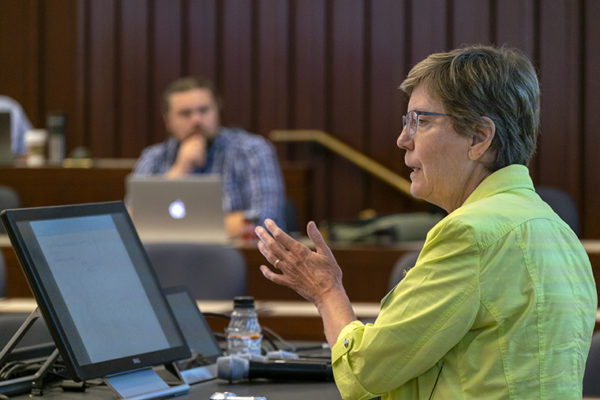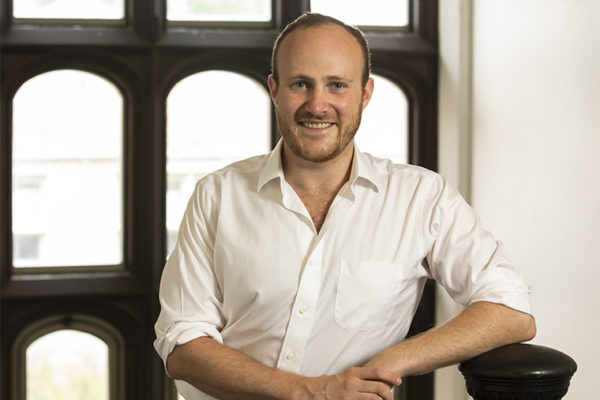Statistically sound
A National Science Foundation-funded workshop recently brought more than 75 statistics researchers to the Danforth Campus. Organized by Todd Kuffner of Arts & Sciences, this is the third year the event has been hosted at the university, and the first since math changed its name this summer to the Department of Mathematics and Statistics.
Noodling around
Steven Frankel, assistant professor of mathematics in Arts & Sciences, talks about why there are no obvious questions in math — and the link between the geometry of a space and how that space changes over time.
Unintended consequences: More high school math, science linked to more dropouts
Washington University researchers have found that courses intended to better prepare high school graduates for college also drive some students to drop out. They report that policies increasing the number of required math and science courses are linked to a higher dropout rate.
Improving undergraduate STEM education is focus of new national initiative
Washington University in St. Louis is one of eight Association of American Universities (AAU) member campuses selected to serve as project sites for the association’s five-year initiative to improve the quality of undergraduate education in science, technology, engineering and mathematics (STEM) fields at its member institutions, AAU officials announced today.
Engineer: Head-first slide is quicker
Whether watching the All-Star Game, a World Series game or just a regular-season Tuesday afternoon game, it’s nearly guaranteed that fans will see daring slides, both feet-first and head-first, and even slides on bang-bang plays at first. Who gets there faster, the head-first slider or the feet-first? The head-first player, says David A. Peters, Ph.D., the McDonnell Douglas Professor of Engineering at Washington University in St. Louis, and big-time baseball fan. He says it’s a matter of the player’s center of gravity.
Summer science camp develops the minds of young Einsteins
If a young Albert Einstein could have picked a summer activity he may have opted to participate in the ExxonMobil Bernard Harris Summer Science Camp at Washington University in St. Louis, June 16-27. An exciting two-week adventure filled with field trips and science experiments, the summer camp proves that math and science can entice a crew of middle school students and lead them to rewarding opportunities.
Bill Nye — the Science Guy —brings enthusiasm to campus
Bill Nye will explore how the latest scientific advancements relate to social policy at 11 a.m. September 13 in Graham Chapel as part of the Assembly Series.
Bill Nye the Science Guy explores the fascinating world of science
Bill Nye will share his infectious enthusiasm for science and explore how the latest scientific advancements relate to social policy at 11 a.m., September 13, in Graham Chapel as part of the Assembly Series.
Curricula that engages students is key to solving nation’s math education problem
Courtesy NASA/JPL-CaltechEngaging students in the power of mathematics is key to a strong curriculum.As parents are taking advantage of back-to-school sales and stocking up on supplies like calculators, pens and pencils, a math education expert at Washington University in St. Louis suggests they also may want to check out the quality of their children’s math education. According to the Trends in International Mathematics and Science Study, the United States continues to lag further behind other developed nations in mathematics education. A critical part of the solution, says Jere Confrey, Ph.D., professor of education in Arts & Sciences, is for school districts to select and implement a solid curriculum with interesting, compelling and rigorous mathematics and then to carefully monitor and evaluate students’ progress while using that curriculum.


